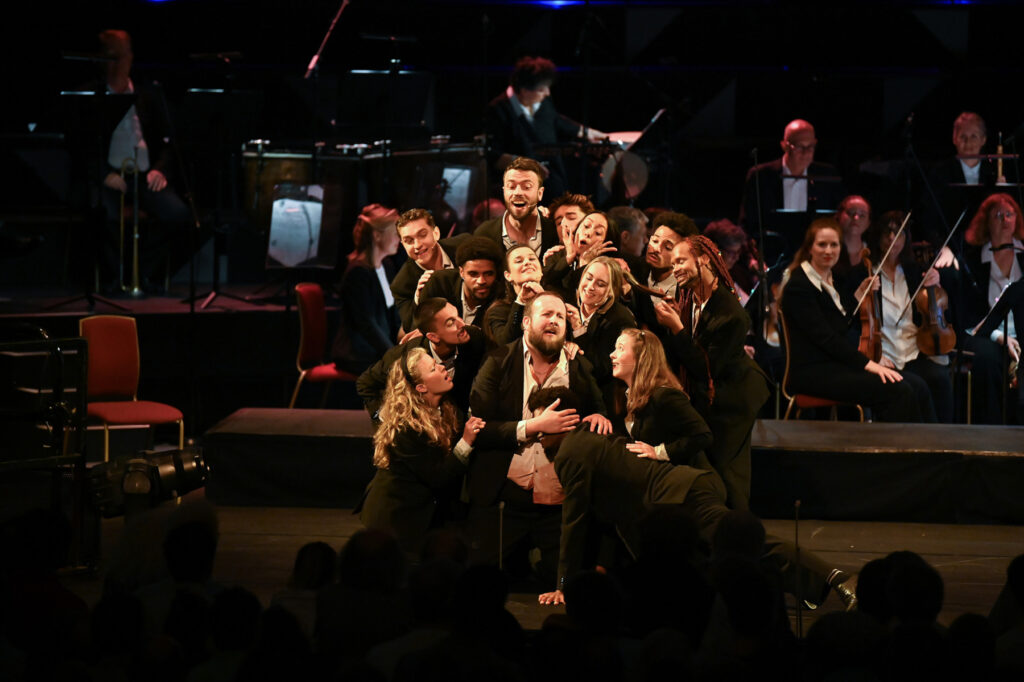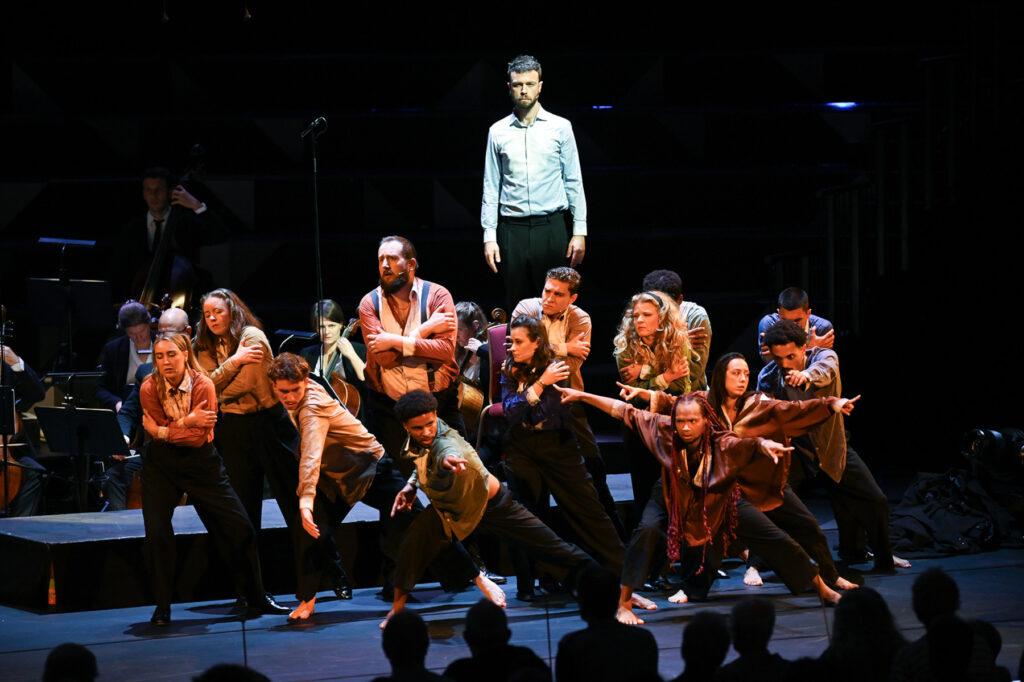Purcell’s ‘other’ stage works are beginning to receive recognition, at last; Dido and Aeneas has held sole sway for too long. Recently, Paul McCreesh recorded King Arthur (1691), while television bon viveur Oz Clarke narrated a Fairy Queen at this year’s Thaxted Festival (with the Armonico Players and Consort); the Thaxted performance is worth mentioning as composer Gustav Holst, so associated with the place of Thaxted, arranged for a performance of Fairy Queen in 1913 (the score was lost for centuries and only published in 1903).
Stagings of a semi-opera (for such this) have the ‘semi’ aspect to contend with – this is less through-composed than a standard opera, and so the narrative thread might not always head in a straight line. The solution here – for solution it was – was to combine the Baroque with the heady acrobatics of hip-hop. The inspired choreographer was Mourad Merzouki, his genre-bending and function-blending (given that dancers had to sing at various times and vice-versa) allowing for a completely new slant on Purcell. This is a far cry from disco dancing to Mozart, a trope of modern opera production that, while amusing on first viewing, soon wore thin (and directors really did wear it thin). Merzouki’s take is infinitely invigorating, its revivification of Purcell’s score surely long-lasting.

So here, the world-famous Les Arts Florissants and singers from Le Jardin des Voix (Les Arts Florissant’s young artist scheme) joined forces with Merzouki’s Compagnie Käfig, an expert – truly expert – group of contortionists and insanely talented dancers. The audible collective gasps from the Kensington audience attested to their excellence; but the important point was surely that their energy was on a par to that injected into Purcell’s music by Agnew’s musicians. It was, then, Purcell who ultimately benefitted.
Claire Schirck’s costumes seemed to contrast black-and-white in the first half with colour in the second. As to the piece as a whole, this approach did emphasise the diffuse nature of the evening (five scenes, or ‘masques’). That is far from a criticism; rather, it emphasised the fascinating acts of juxtaposition and contrast (as the music moves from the opening world of A Drunken Poet to the ‘Masque of Sleep,’ for example). In opposition to this was the cohesiveness of the stage performers: it is not just that singers danced and that dancers sang, more that this was one ‘super-ensemble’ performing (singing/playing) and illustrating (dancing) Purcell’s tale. I assume this idea of a collective is why singers in the programme booklet listing are not assigned roles.

Purcell’s sense of humour and dream was palpably reflected in the staging – for example the delightful human imitations of birds in ‘Coms All ye Songsters of the Sky’. Counterpointed against this were the moments of high intimacy: high tenor Ilja Aksionov gave a spell-binding account of ‘One Charming Night’ from the work’s second part. Always – always – dance complemented and supported Purcell’s music, which remained at the very heart of the experience. And it was not just the dancers who were mobile: Les Arts Florissant’s leader, Augusta McKay Lodge, joined mezzo Juliette May in a performance of ‘O lt me weep’ that cut to the quick.
Just to add to the mix, a bit of cross-dressing, perhaps a reflection of the blending of identities we saw in the singing/dancing dynamic: Corydon and Mopsa (Hugo Herman-Wilson and Ilja Aksionov, respectively), both absolutely magical. And ‘magical’ is the right word for this entire evening, enlivened by pretty much perfect playing from the instrumental ensemble – not all ‘pure’ Arts Florissants: where there are significant trumpet solos in major events in London, there can be found David Blackadder, one of the finest of bass players, here matched in excellence by his trumpeter colleague Rupprecht Drees.
A superb, energising, eye-popping evening. This year’s Proms is shaping up well.
Colin Clarke
The Fairy Queen
Composer: Henry Purcell (Librettist unknown)
Cast and Production staff:
Paulina Francisco – soprano; Georgia Burashko – mezzo-soprano; Rebecca Leggett – mezzo-soprano; Juliette Mey – mezzo-soprano; Ilja Aksionov – tenor; Rodrigo Carreo – tenor; Hugo Herman-Wilson – baritone; Benjamin Schilperoort – bass-baritone
Dancers: Baptiste Coppin, Samuel Florimond, Anahi Passi, Alary-Youra Ravin, Daniel Saad, Timothée Zig
Director / Choreographer – Mourad Merzouki; Assistant Choreographer – Rémi Autechaud; Costumes – Claire Schirck; Lighting – Fabrice Sarcy; Language Coach – Sophie Daneman; Conductor – Paul Agnew; Singers from Le Jardin des Voix and Les Arts Florissants
Royal Albert Hall, London, 6 August 2024.
All photos by Chris Christodoulou.